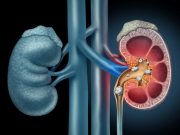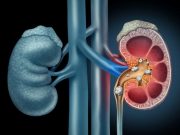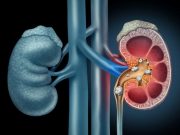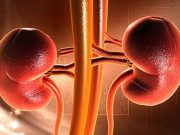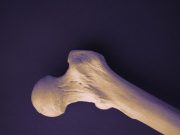Tag: Kidney Stones
Hydrochlorothiazide Does Not Affect Recurrence of Kidney Stones
For patients with recurrent kidney stones, no difference seen in recurrence with hydrochlorothiazide 12.5, 25, 50 mg versus placebo
Ho:YAG Laser, Thulium Laser Fiber Both Effective for Stone Management
No significant difference seen for ureteroscopy time or in stone-free rate or complication rates
Combination Ultrasound Technique Treats Ureteral Stones
Combination of ultrasonic propulsion and burst wave lithotripsy feasible in awake patients to reposition and break up ureteral stones for passage
Low Dietary Calcium, Potassium Intake Tied to Kidney Stone Recurrence
Adding foods high in calcium and potassium to the diet may help prevent recurrent symptomatic kidney stones
Removing Small, Asymptomatic Kidney Stones Beneficial
Risk for relapse lower with removal of small, asymptomatic, secondary stones during endoscopic removal of primary stone
Adjunctive Acupuncture May Speed Relief From Pain of Renal Colic
Response rates higher for acupuncture versus sham acupuncture at zero, five, 10, 15, 20, and 30 minutes, but not at 45 and 60 minutes
SuperPulsed Thulium Fiber Laser Beneficial for Pediatric Urolithiasis
SPTF associated with higher stone-free rate compared with Ho:YAG with no increase in operative time, complications
Burst Wave Lithotripsy Promising for Breaking Up Kidney Stones
Median of 90 percent comminution of total stone volume observed in the first 19 humans undergoing burst wave lithotripsy
Risk for Kidney Stones Increased During, After Pregnancy
Risk increased during second and third trimesters; peak in risk found at zero to three months after delivery, followed by decrease in risk
Bone Density Testing Low in Veterans With Kidney Stone Disease
23.6 percent of those with kidney stone disease have prevalent diagnosis of osteoporosis or fracture



